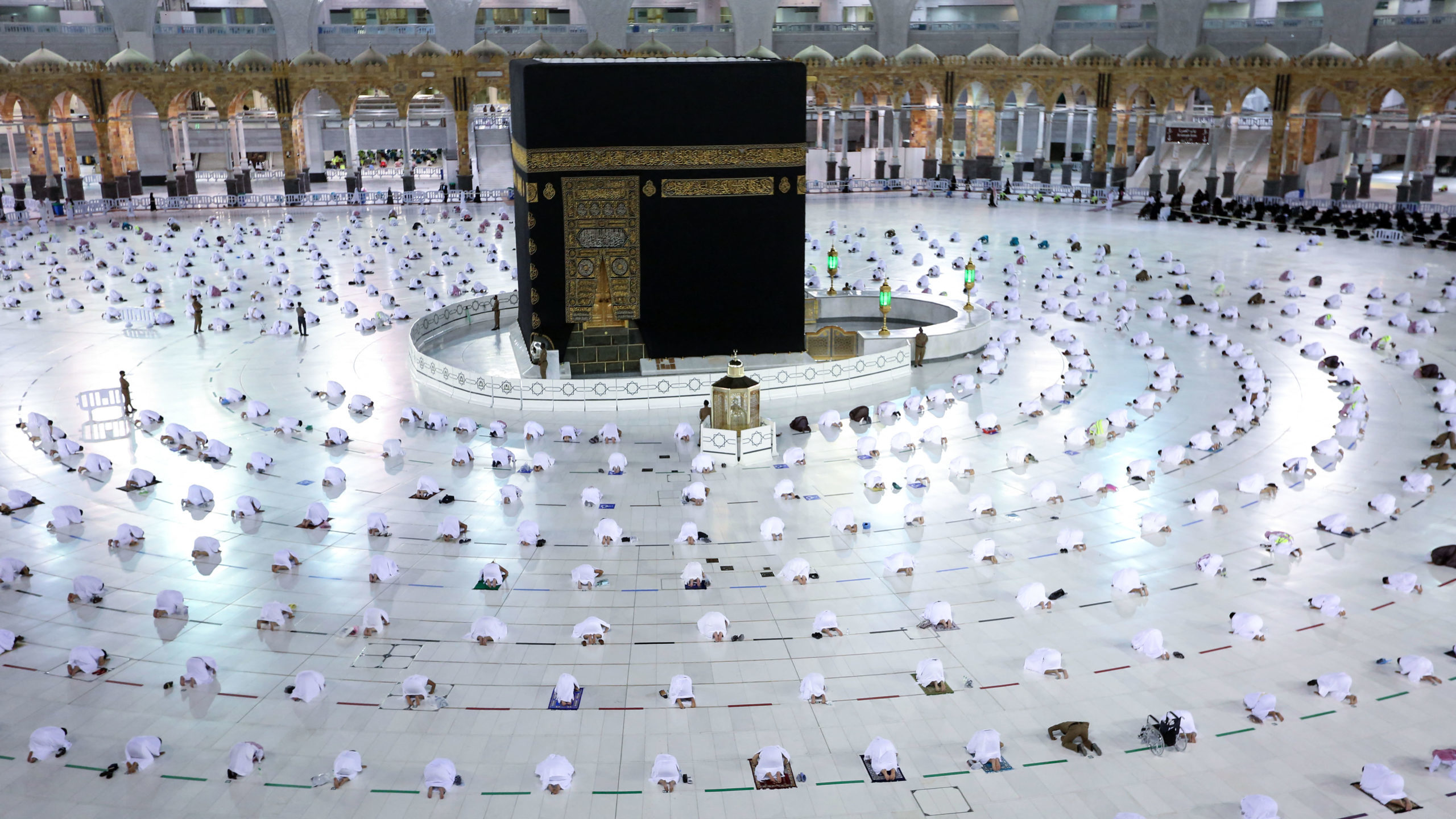As COVID Cases Spike in Middle East, More Countries Restrict Ramadan Activities
Turkey, Iran, Oman, Syria, Iraq, and Lebanon experience particularly high volume of new infections
Several countries in the Middle East are experiencing a surge in coronavirus infections, leading governments to curtail nighttime festivities during the Islamic holy month of Ramadan.
Turkish President Tayyip Erdoğan instituted a partial lockdown for the first half of Ramadan and extended the weekend curfews to May 17, with the restrictions to begin at 7 pm instead of 9 pm. The measures also included the closure of recreational areas and measures such as banning the use of public transportation for seniors. Turkey has the fourth-highest rate of new COVID-19 cases worldwide, according to Reuters.
Iran is in the middle of a nationwide lockdown set to end at the beginning of next week. This follows an increase in infections after Nowruz, the Persian New Year, which begins on the first day of spring. This week, the country hit a 2021 record for deaths on one day of 258.
On Wednesday evening, Oman announced an evening curfew for Ramadan following a spike in cases that leaves the country facing a shortage of hospital beds.
In Syria on Tuesday, the Autonomous Administration of North and East Syria, also known as Rojava, put in place a curfew in locales controlled by Kurdish forces.
This holiday season, give to:
Truth and understanding
The Media Line's intrepid correspondents are in Israel, Gaza, Lebanon, Syria and Pakistan providing first-person reporting.
They all said they cover it.
We see it.
We report with just one agenda: the truth.


Iraq on Monday, after recording its highest number of cases last week, declared a partial lockdown throughout Ramadan during workdays, which will transition to a complete lockdown on weekends.
That same day, Lebanon greenlighted rules limiting when people can venture out at night during the holiday.
Also on Monday, Kuwait’s cabinet limited the duration of the Tarawih evening prayer –performed during Ramadan in addition to the nightly Isha prayer – at mosques to 15 minutes and prohibited all communal break-fast events at night, whether in public or private. This went further than Saudi Arabia, which only stopped outside of the home gatherings when eating is allowed.
The World Health Organization acknowledged the regional rise in cases this week when it tweeted some of the remarks of its director-general, Dr. Tedros Adhanom Ghebreyesus, following a media briefing on Monday: “Several countries in Asia and the Middle East have seen large increases in #COVID19 cases. This is despite the fact that more than 780 million doses of vaccine have now been administered globally.”
Still, not all countries in the MENA region face increasing restrictions on movement, for example, Jordan and Egypt, which enjoy more open economies than they did 12 months ago. In the latter nation, people can dine at restaurants indoors and freely go to mosques with coronavirus safety measures in place.
Here are the latest COVID-19 numbers for the Middle East and North Africa as of 7 am Greenwich Mean Time (UTC±0) on Thursday.
| Country | Confirmed Cases | Deaths | Recovered | Active Cases |
| Afghanistan | 57,534 | 2,533 | 52,022 | 2,979 |
| Algeria | 118,975 | 3,141 | 82,929 | 32,905 |
| Bahrain | 159,964 | 569 | 148,093 | 11,302 |
| Cyprus | 53,254 | 277 | 39,061 | 13,916 |
| Djibouti | 10,202 | 106 | 8,591 | 1,505 |
| Egypt | 212,961 | 12,570 | 161,031 | 39,360 |
| Iran | 2,143,794 | 65,359 | 1,739,002 | 339,433 |
| Iraq | 949,050 | 14,836 | 831,519 | 102,695 |
| Israel | 836,504 | 6,312 | 827,184 | 3,008 |
| Jordan | 676,175 | 7,987 | 617,096 | 51,092 |
| Kuwait | 251,675 | 1,423 | 235,053 | 15,199 |
| Lebanon | 502,299 | 6,778 | 413,175 | 82,346 |
| Libya | 170,045 | 2,834 | 155,117 | 12,094 |
| Mauritania | 18,066 | 452 | 17,428 | 186 |
| Morocco | 503,664 | 8,920 | 489,928 | 4,816 |
| Oman | 175,633 | 1,807 | 155,645 | 18,181 |
| Pakistan | 739,818 | 15,872 | 646,652 | 77,294 |
| Palestinian Territories | 274,690 | 2,923 | 239,291 | 32,476 |
| Qatar | 192,963 | 348 | 171,388 | 21,227 |
| Saudi Arabia | 401,157 | 6,781 | 385,441 | 8,935 |
| Somalia | 12,837 | 656 | 5,346 | 6,835 |
| Sudan | 31,790 | 2,208 | 25,539 | 4,043 |
| Syria | 20,555 | 1,402 | 14,335 | 4,818 |
| Tunisia | 276,727 | 9,480 | 229,754 | 37,493 |
| Turkey | 4,025,557 | 34,734 | 3,480,146 | 510,677 |
| United Arab Emirates | 489,495 | 1,541 | 473,398 | 14,556 |
| Yemen | 5,582 | 1,083 | 2,128 | 2,371 |
| Total | 13,310,966 | 212,932 | 11,646,292 | 1,451,742 |
Steven Ganot contributed to this report.

